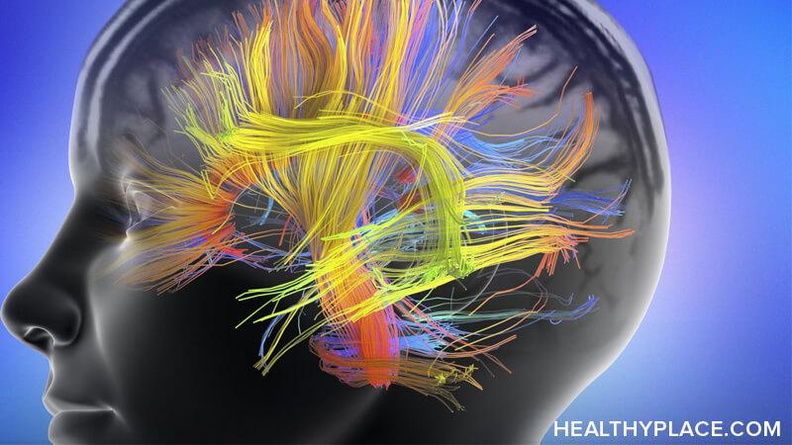Meditation Improves Your Mind and Changes Your Brain

Meditation improves your mind and changes your brain. It has been in practice for centuries, and it's recently become more popular in mainstream culture, especially as a mental health coping mechanism. Researchers have been looking further into the scientific impacts of meditation, and they have found that regular meditation actually changes the physical structure of your brain. As if that isn't cool enough, further research shows that meditation reduces stress and anxiety, boosts creativity and focus, and can improve relationships.1 All of these effects effects of how meditation improves your mind can make a huge impact in coping with depression.
Meditation Improves Your Mind in 3 Important Ways
Meditation Reduces Feelings of Stress and Anxiety
Meditation in any amount can reduce feelings of stress and anxiety. Headspace, a worldwide organization that teaches people about mindfulness, reports that practicing meditation for as little as three days in a row can significantly decrease stress, reduce the brain's level of reactivity to physical threats, and increase a person's ability to regulate emotions.2
These positive effects of meditation mean that feelings of stress and anxiety can significantly decrease. With less of a fight-or-flight response going off in your brain, and an improved ability to process emotions, your brain can feel a little quieter and calmer. Not only does a calm brain generally feel better than an anxious brain, but it also makes it a little easier to cope with depression.
Meditation Boosts Creativity and Focus
 Creativity and focus improve when your brain is capable of being present in the current moment, and practicing mindful meditation can increase your ability to be present. Headspace explains that meditation can quiet your mind's "mental chatter."3 This can lessen the distractions that prevent you from focusing on what's in front of you. Also, people who regularly meditate experience changes in the parts of the brain that monitor focus and self-control, which further amps up self-awareness.4
Creativity and focus improve when your brain is capable of being present in the current moment, and practicing mindful meditation can increase your ability to be present. Headspace explains that meditation can quiet your mind's "mental chatter."3 This can lessen the distractions that prevent you from focusing on what's in front of you. Also, people who regularly meditate experience changes in the parts of the brain that monitor focus and self-control, which further amps up self-awareness.4
Creativity is useful in coping with depression, as it can help you view thoughts and feelings in different ways. Plus, being more conscious and focused on the present is an excellent way to control your bad brain days, and settle your busy mind.
Meditation Is for Anyone And Everyone
I was very skeptical about my ability to meditate because I felt like my brain was too busy and chaotic to sit down and be calm. Luckily, I found the Headspace app, which has worked wonders for me. It makes mindful meditation accessible and simple, and it only takes 10 minutes a day, so I can take baby steps towards regular meditation.
Of course, there are tons of other options for beginners, such as practicing quick, one-minute mindfulness techniques, or doing breathing exercises (Learn Meditation for Beginners).
No matter what meditation method you choose, remember that the point of meditation is to be mindful of your brain and body, and to do what works for you. With practice, you'll reap the benefits of meditation, improving your ability to cope with depression and all that life throws your way.
Sources
1 The Science of Meditation. (2016). Headspace. Retrieved 11 October 2016, from https://www.headspace.com/science
2 Meditation for Stress. (2016). Headspace. Retrieved 11 October 2016, from https://www.headspace.com/science/meditation-for-stress
3 Creative Thinking. (2016). Headspace. Retrieved 11 October 2016, from https://www.headspace.com/science/creative-thinking
4 Focus And Mindfulness Meditation. (2016). Headspace. Retrieved 11 October 2016, from https://www.headspace.com/science/mindfulness-meditation-focus
Find Tiffanie on Twitter, Facebook, Google+, and her personal blog.
APA Reference
Verbeke, T.
(2016, October 12). Meditation Improves Your Mind and Changes Your Brain, HealthyPlace. Retrieved
on 2026, March 3 from https://www.healthyplace.com/blogs/copingwithdepression/2016/10/meditation-physically-changes-your-brain
Author: Tiffanie Verbeke
Thanks for sharing such an informative blog.The blog tells about the treatment of depression and it can be cured by meditation.This blog also tells that meditation phyically changes your brain and boost creativity and focus.This blog will help to many as many people are suffering from depression.Great blog.
Meditation is definitely a great way to bust stress, but to get rid of anxiety, sometimes it’s a great idea to have expert guidance. Meditating might help you cope with work stress, but what if you’re going through a tough relationship or addiction problems? You may need more than just five minutes of silence.
Psychotherapy has proven to be a powerful tool to achieve clarity of thought and deal with problems. The professionals have training and experience that helps understand the situation better. Speaking your heart out also helps immensely.
Hey Iris,
Some situations certainly call for professional guidance, while Meditation is an excellent daily maintenance tool. As always, an individual's needs vary from situation to situation.
Tiffanie
I’m a therapist who has had moments just like you where we really needed to speak to someone. I’ve found that talking through our emotional, psychological, or mental issues is one of the best methods of releasing our anger, stress, depression or pain.Feel free to contact me to anyone in need of healing or a friend.
Hi there,
Talking certainly is helpful in difficult times, I absolutely agree. Thank you for your work in the field of therapy.
Tiffanie